Nigeria marks 3 years since 276 Chibok schoolgirls abducted by Boko Haram
The fate of nearly 200 girls remains unknown.
— -- It’s been three years since Boko Haram militants ambushed the small Nigerian town of Chibok in the middle of the night and abducted 276 schoolgirls before vanishing into the forest.
Some of the girls managed to escape, while others were later freed. But the fate of nearly 200 still remains unknown.
“I will never forget about them and I will never stop speaking until they come back," one of the escaped girls, identified as Sa'a, told a press conference Friday, marking the painful anniversary in Washington, D.C.
The kidnapping shocked the world and led to the launch of a social media campaign in which millions of people around the globe, including high-profile political figures and celebrities, called for the girls' rescue by tweeting the hashtag #BringBackOurGirls. However, there has been little political action.
"Our Chibok girls went to get educated. Education is the lifeline to great opportunities. We cannot deprive them of that opportunity by leaving them with Boko Haram. They must be back," Oby Ezekwesili of the #BringBackOurGirls movement said Friday in an interview with BBC News.
"The rest of the world that seems to have moved on cannot move on. We’re all in captivity for as long as schoolgirls who went in quest of knowledge in order to further our civilization were taken away by those who are haters of our civilization."
On Wednesday night, the Nigerian government said it "has gone quite far with negotiations" with Boko Haram to release the remaining schoolgirls.
Boko Haram, which seeks to establish an Islamic state, launched its brutal insurgency in northern Nigeria by 2009. The Islamic militant group has since spread its terror across Nigeria's mountainous borders into Niger, Chad and Cameroon, all of which surround the Lake Chad Basin.
Boko Haram, whose name roughly translates into "Western education is forbidden," has killed more than 20,000 people and displaced some 2.3 million, according to the latest figures from the United Nations. The jihadist group's uprising was fueled largely through the group's systematic campaign of abducting children and forcing thousands of girls and boys into their ranks, according to a report issued Wednesday by the United Nations Children's Fund (UNICEF).
The upheaval has also contributed to a severe famine. In 2017, 340,000 people in Nigeria are expected to face food insecurity and about 12,000 children will suffer from acute malnutrition, according to Oxfam.
"The Chibok abduction remains one of the most well-known examples, but the practice is widespread; it preceded Chibok and continues to this day," the report said. "As the world marks three years since the abduction of the Chibok girls, it is an opportunity to reflect on the wider implications for children in this crisis. While the abductions in Chibok horrified the world, a shocking part of the story is what happens to children in captivity –- and after they are released."
Here's a timeline looking back at the abduction and important developments:
April 14, 2014
Boko Haram militants descend on the town of Chibok in Borno State, northeast Nigeria, in the middle of the night. They snatch 276 girls from their beds at the Government Girls' Secondary School, a boarding school in the town, and herd them into trucks.
The militants vanish with the schoolgirls behind the dense forest brush by sunrise.
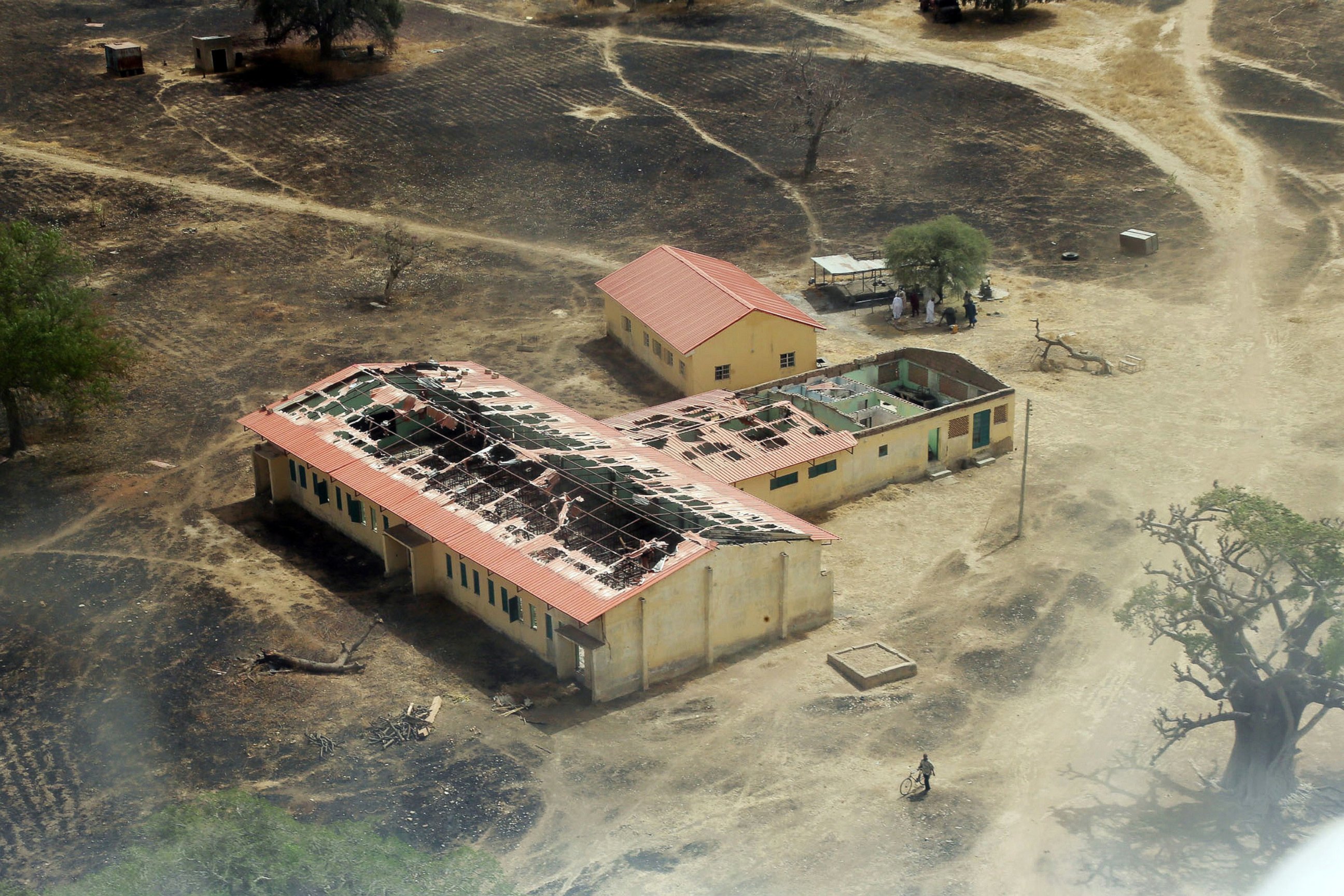
November 2014
Boko Haram fighters seize Chibok on Nov. 14, 2014, after repeatedly targeting villages around the town in recent months.
Two days later, the Nigerian military says it has recaptured Chibok.
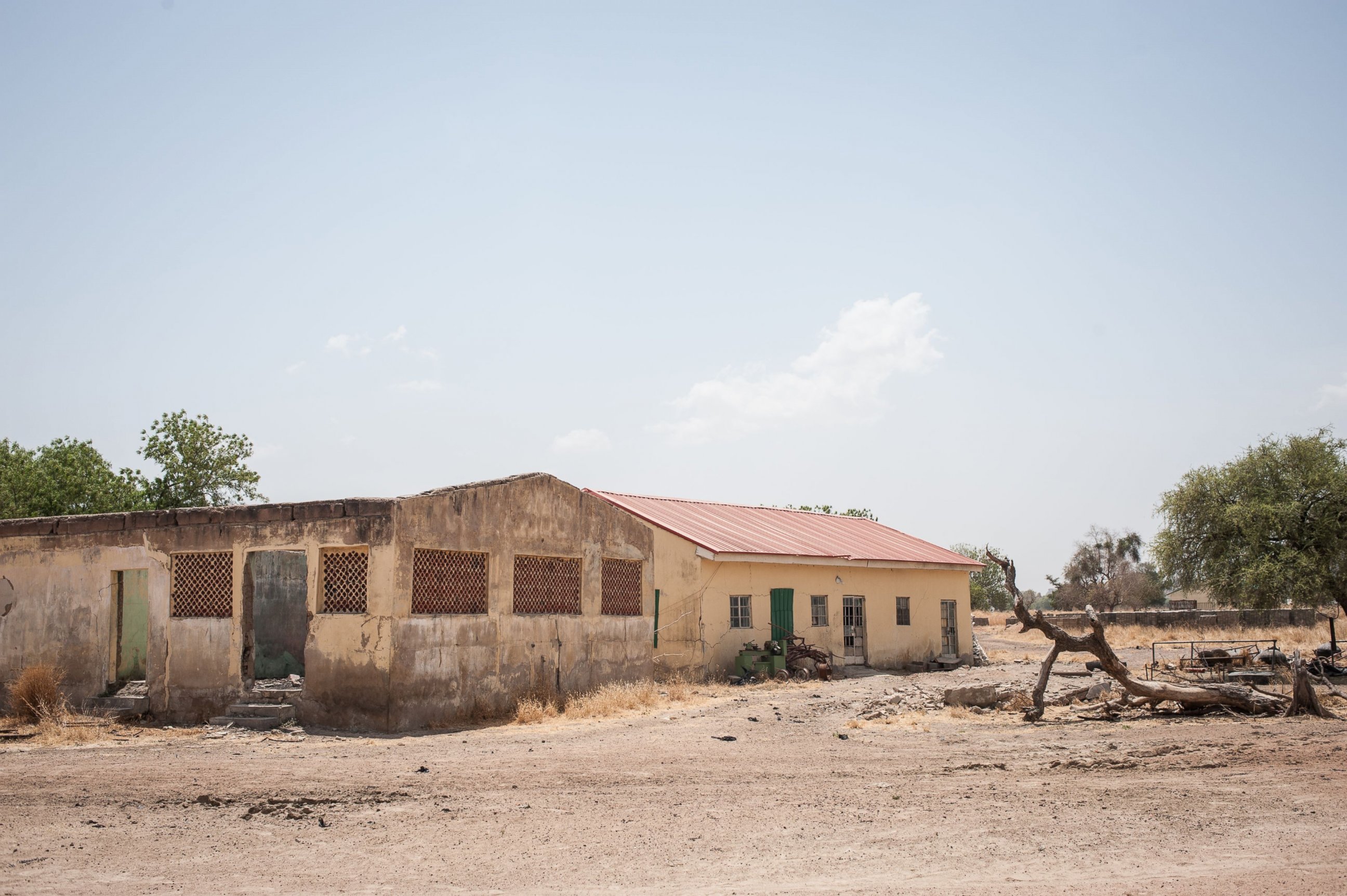
May 29, 2015
Nigeria's newly-elected President Muhammadu Buhari is sworn in, pledging to make the war against Boko Haram a top priority and to tackle the insurgency “head-on."
The Nigerian government's failure to act quickly on the Chibok abduction contributed to President Goodluck Jonathan's electoral defeat to Buhari in March 2015, analysts say.
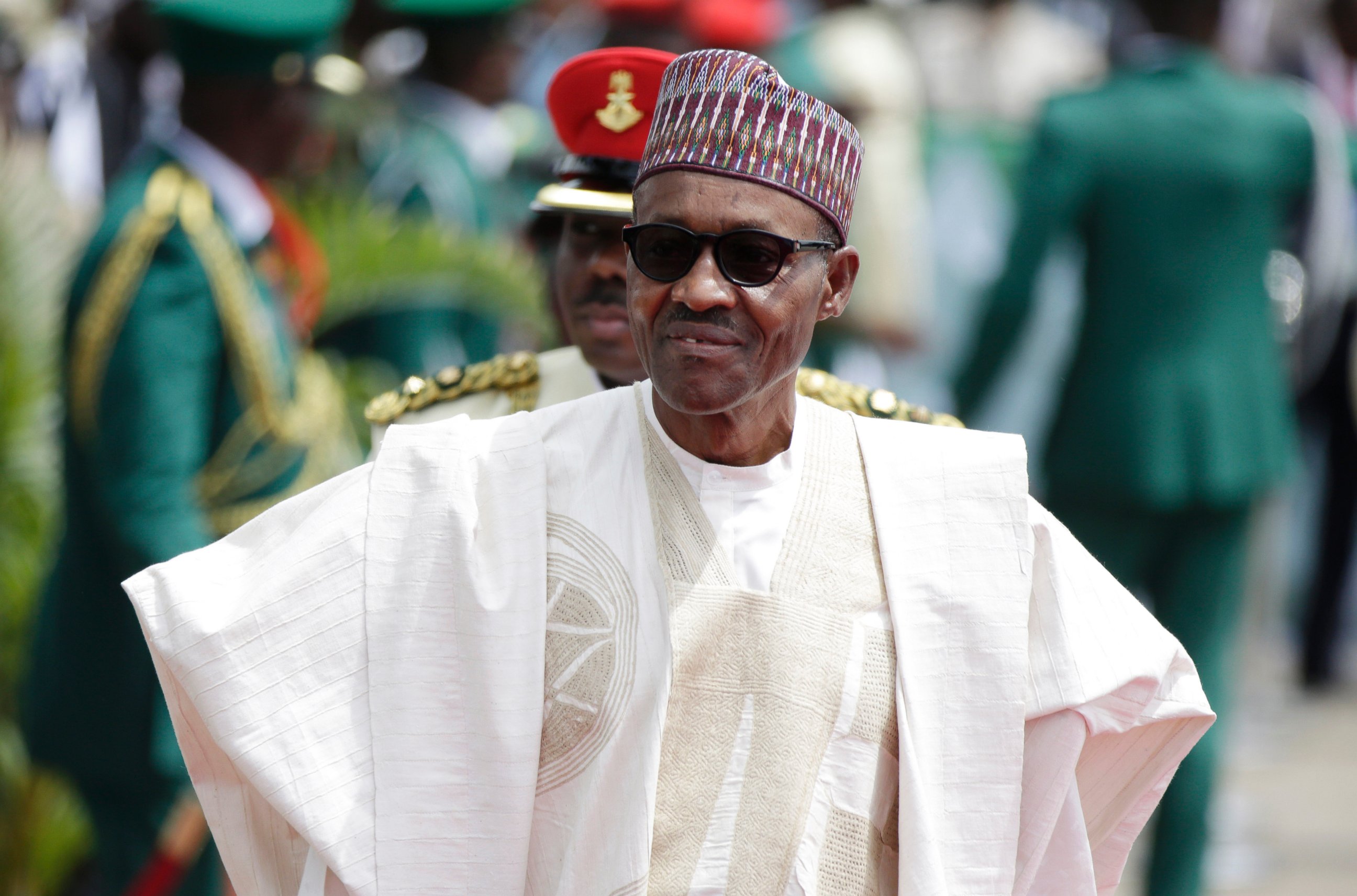
April 13, 2016
Boko Haram releases a video appearing to show some of the Chibok schoolgirls. The footage, allegedly filmed in December 2015, shows 15 girls wearing Islamic garb.
Tearful parents of the girls are able to recognize their missing daughters.
May 18, 2016
The Nigerian military says its troops, along with a vigilante group, found one of the missing Chibok girls.
The girl, identified by the army as Amina Ali, was found with a 4-month-old baby and a man who claimed to be her husband in the vast Sambisa Forest, a stronghold of Boko Haram in northeast Nigeria, according to army spokesman Sani Usman.
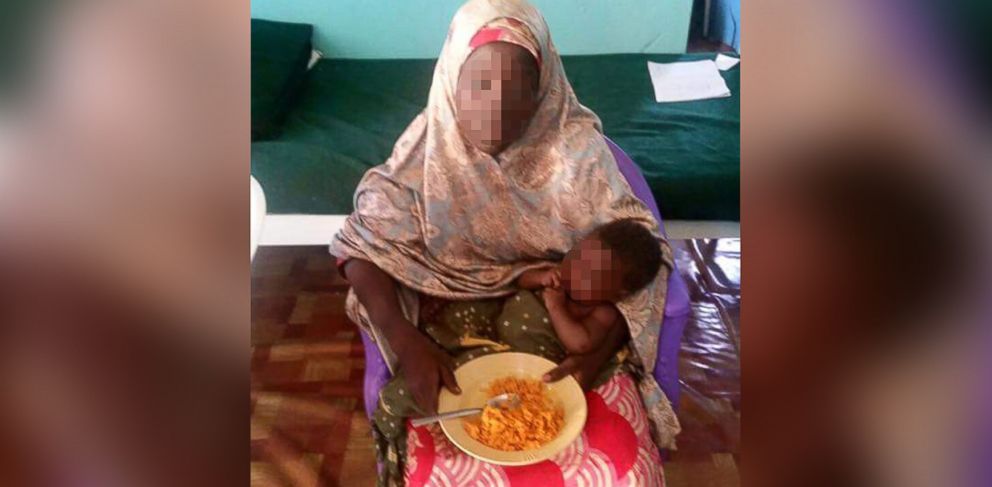
May 19, 2016
Amina Ali is transported to the Nigerian capital of Abuja where she meets privately with the president.
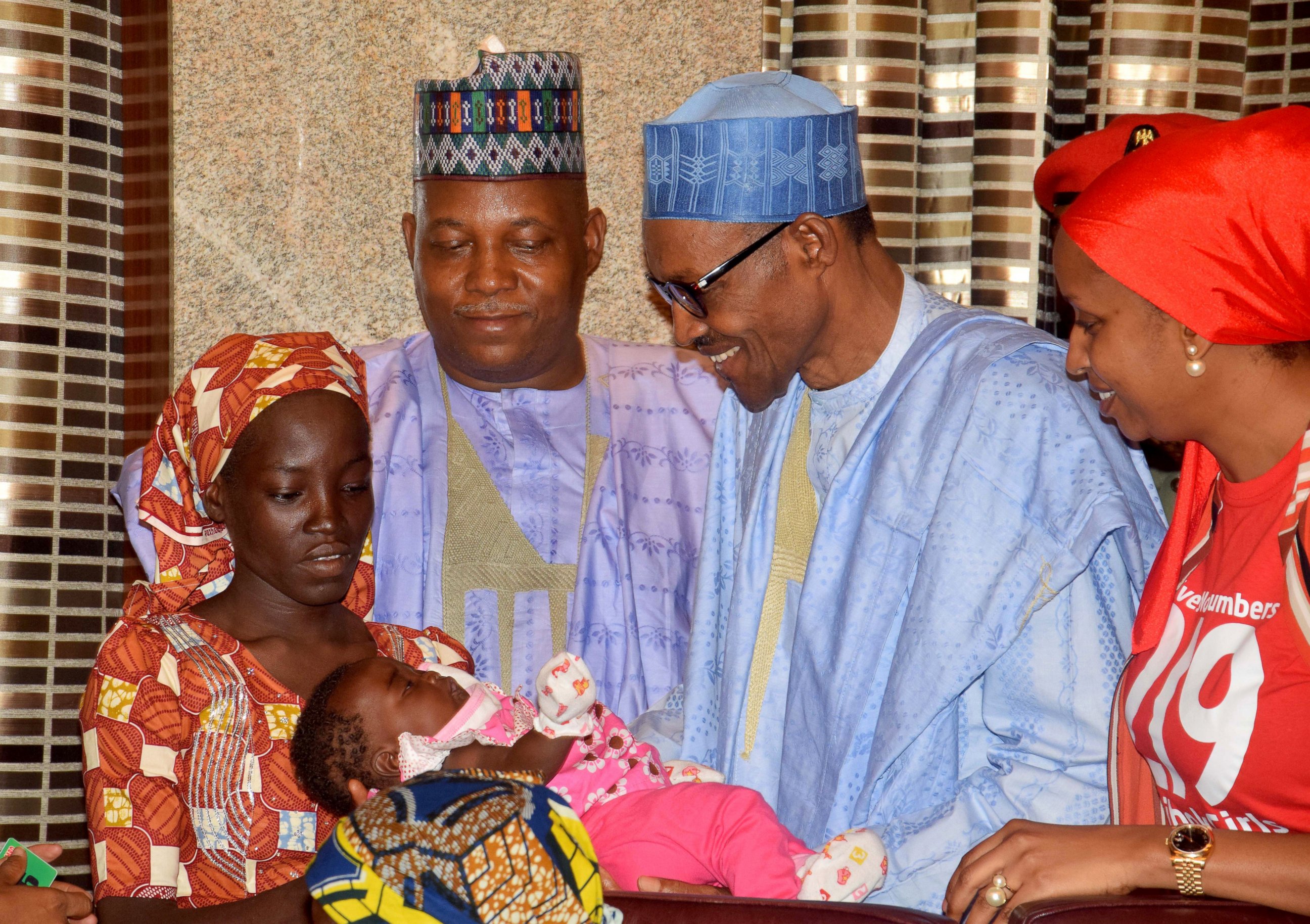
Aug. 14, 2016
Boko Haram releases a video showing some of the missing girls dressed in Islamic garb.
In the video, a masked militant dressed in camouflage and brandishing a gun says there have been no negotiations with the Nigerian government and that some of the kidnapped Chibok girls have died in airstrikes targeting Boko Haram. He says the remaining girls will be freed if the government releases imprisoned members of the group.
The militant then instructs one of the girls to speak. She speaks carefully as she identifies herself and delivers a scripted appeal for freedom. The video ends showing what appear to be the bodies of several dead girls.
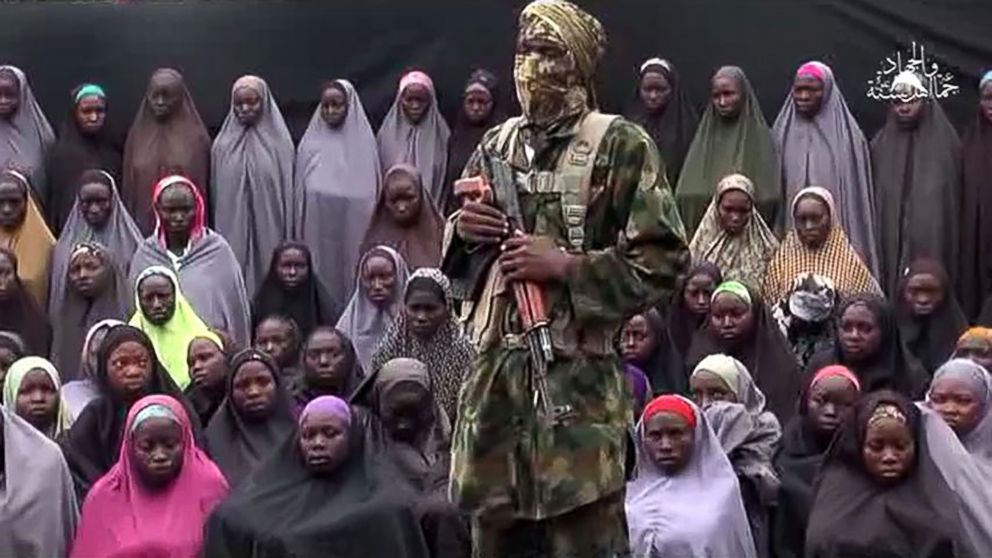
Aug. 29, 2016
Esther Yakubu, whose daughter Maida is among the kidnapped schoolgirls, releases a video message to the Nigerian government in a desperate plea to save her daughter.
Yakubu says she recognized her daughter, now 18, in the latest video released by Boko Haram.
“Maida, you’re my life,” she says through tears in her native Kibaku language, translated into English. “Maida, I want to see you.”
Yakubu says she has not been contacted by the Nigerian government regarding her captive daughter. The grief-stricken mother says she and other activists fighting for the Chibok girls’ freedom have tried to deliver a message to the Nigerian president in recent days but they were blocked by police from entering the presidential villa.
“This message I have for the federal government is for them to release the fighters so that the fighters will release the girls,” Yakubu says, speaking in English. “For two years, four months [the girls] have been in the hands of terror.”
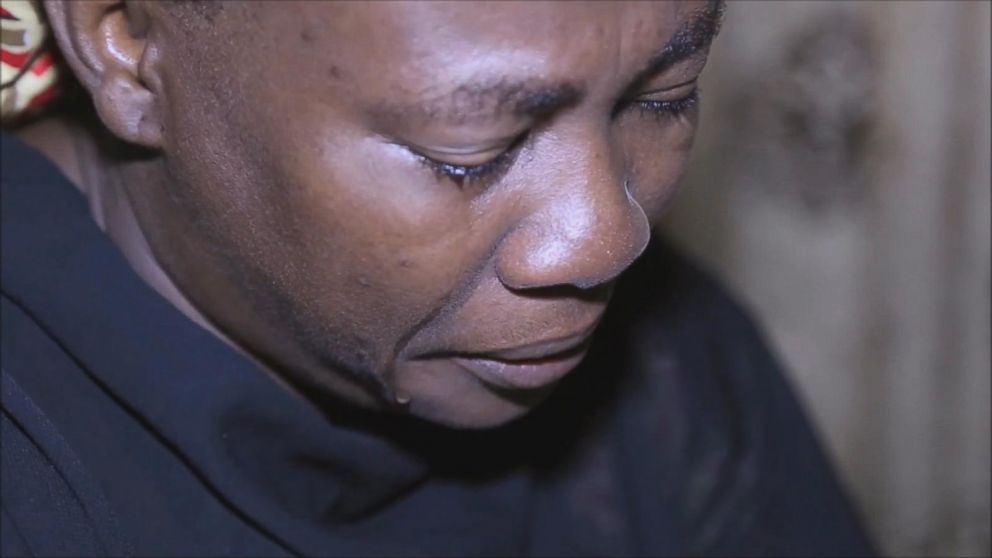
Oct. 13, 2016
A spokesman for Nigeria's president confirms 21 of the missing Chibok girls have been freed by Boko Haram, following government negotiations with the terrorist group.
“The release of the girls, in a limited number is the outcome of negotiations between the administration and the Boko Haram brokered by the International Red Cross and the Swiss government,” presidential spokesman Garba Shehu says in a statement.
Shehu says the negotiations with Boko Haram will continue to secure the release of the remaining girls. The president welcomed the girls' release but he “cautioned Nigerians to be mindful of the fact that more than 30,000 fellow citizens were killed by terrorism,” Shehu says in a statement.
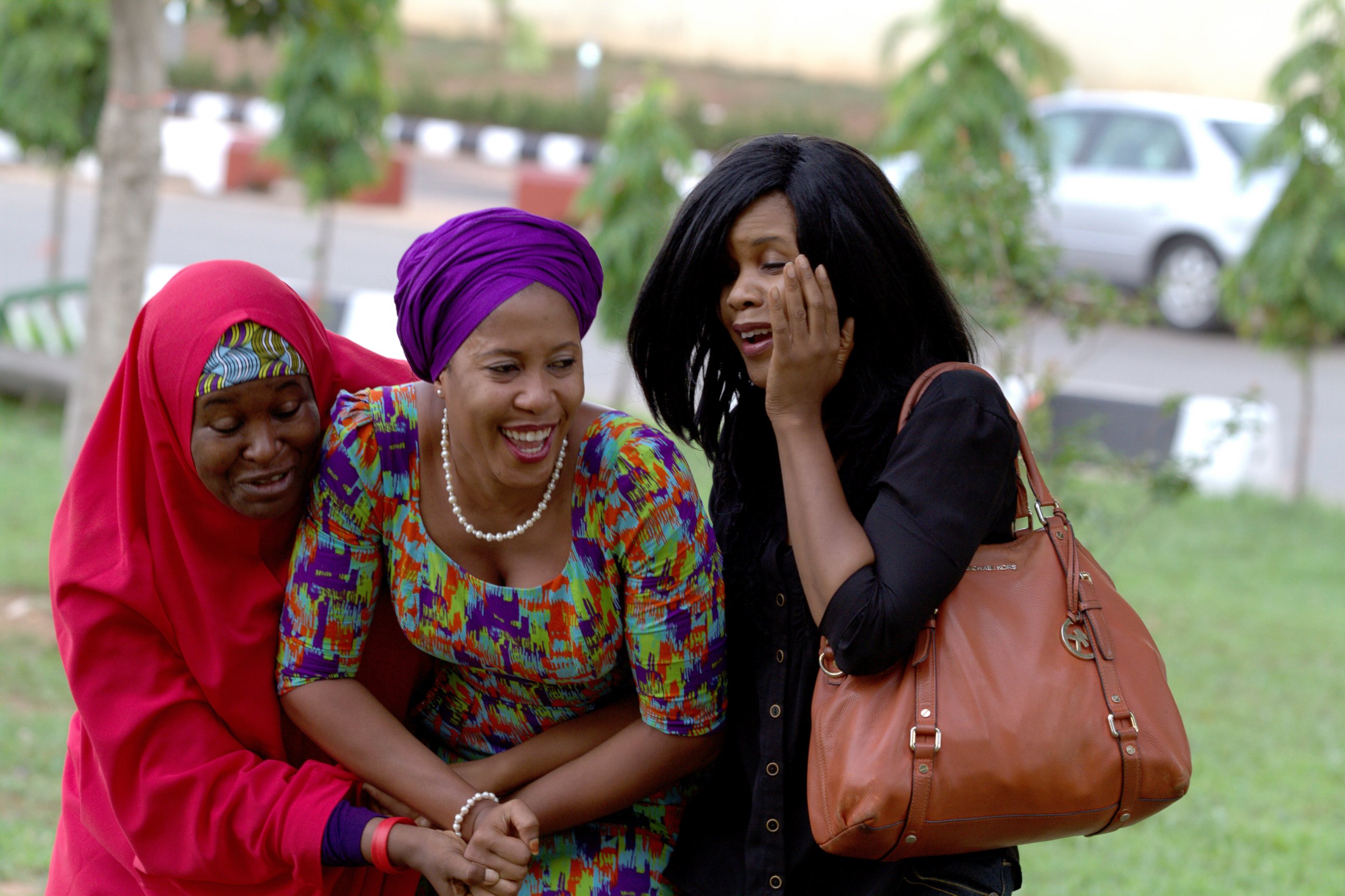
According to Nigeria's Minister of Information and Culture Alhaji Lai Mohammed, the girls were released safely to government officials the morning of Oct. 13, 2016, by 5:30 a.m. local time at an undisclosed location and were transported to Kaduna in northwest Nigeria. The girls were flown to Abuja, where they were received by the vice president and "a team of medical doctors, psychologists, social workers, trauma experts" will examine them, Mohammed says.
"Especially because they have been in captivity for so long," the minister notes. "We are now contacting their parents as part of the necessary verification exercise.
Mohammed says the girls' negotiated release was not a prisoner swap with Boko Haram.
"Please note that this is not a swap. It is a release, the product of painstaking negotiations and trust on both sides," he says. "We see this as a credible first step in the eventual release of all the Chibok girls in captivity. It is also a major step in confidence building between us as a government and the Boko Haram leadership on the issue of the Chibok girls."
Elodie Schindler, a spokeswoman for the International Committee of the Red Cross, confirms to ABC News that the humanitarian group, "acting as a neutral intermediary," transferred 21 of the missing Chibok schoolgirls and handed them over to Nigerian authorities on Thursday. The group was not part of the Nigerian government's negotiations with Boko Haram and was only involved in the girls' transfer and transport. Schindler denies providing further comment or additional details.
The successful negotiations mark the first major breakthrough since the girls were kidnapped.
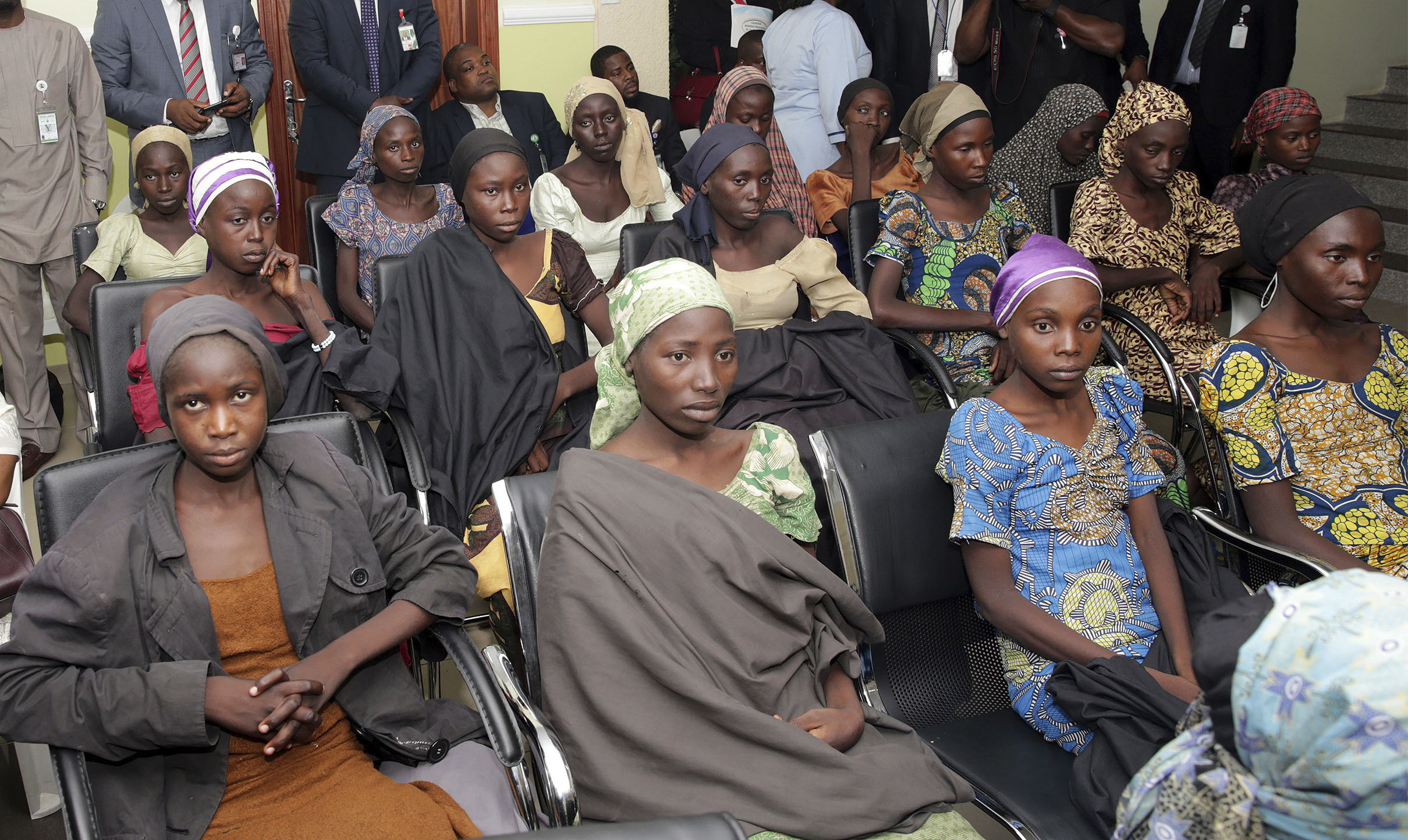
Nov. 5, 2016
The Nigerian military announces the first army rescue of a Chibok girl during a raid on a terrorist camp in Sambisa Forest. The girl, identified by the army as Maryam Ali Maiyanga, was found carrying a 10-month-old baby.
The girl and her child are transported to the army's medical facility for an examination, army spokesman Sani Usman says in a statement.
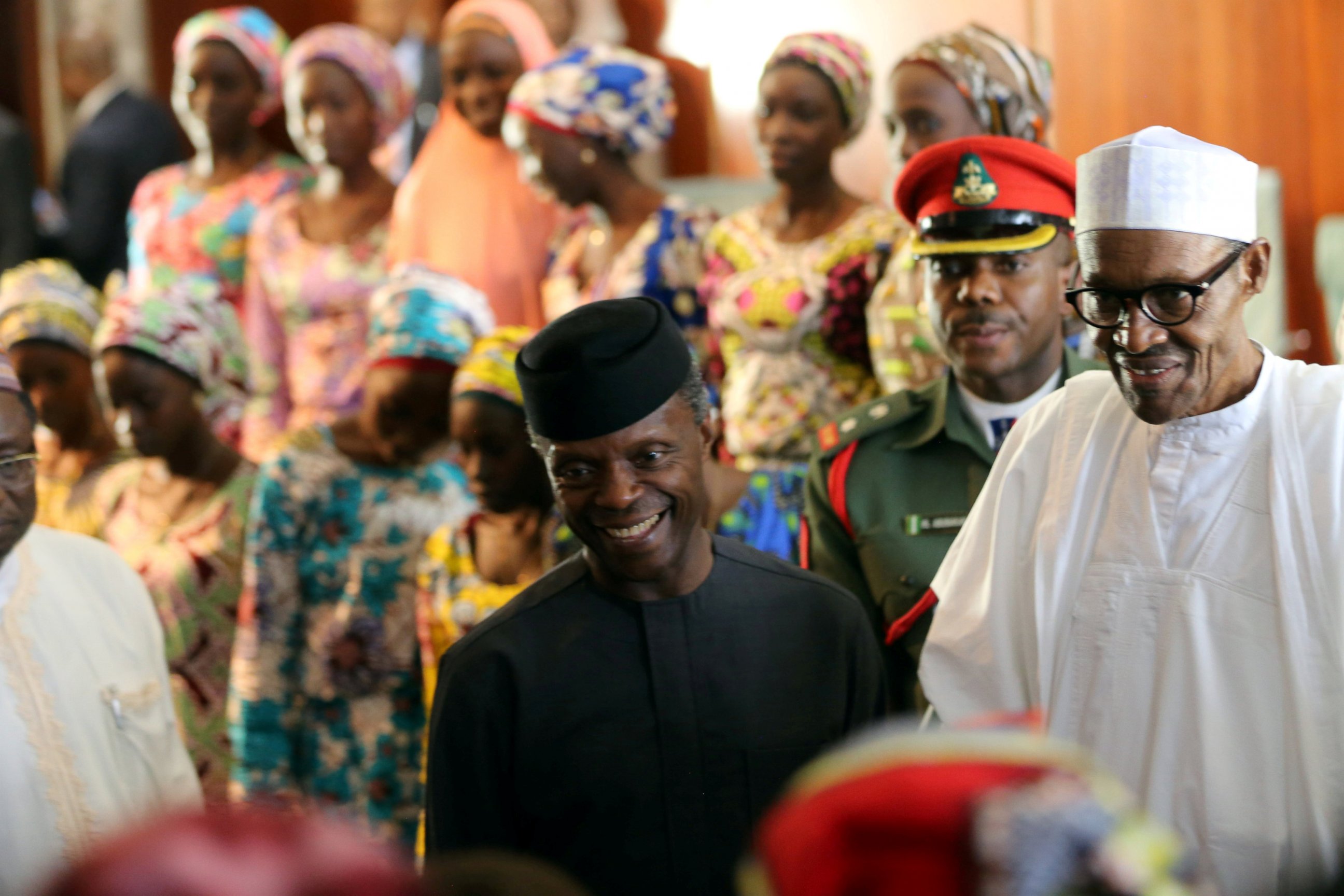
Dec. 24, 2016
Nigeria’s president declares that Boko Haram militants are “on the run and no longer have a place to hide,” driven from their last camp in their Sambisa Forest stronghold.
The statement adds to several exaggerated declarations of military successes against Boko Haram.
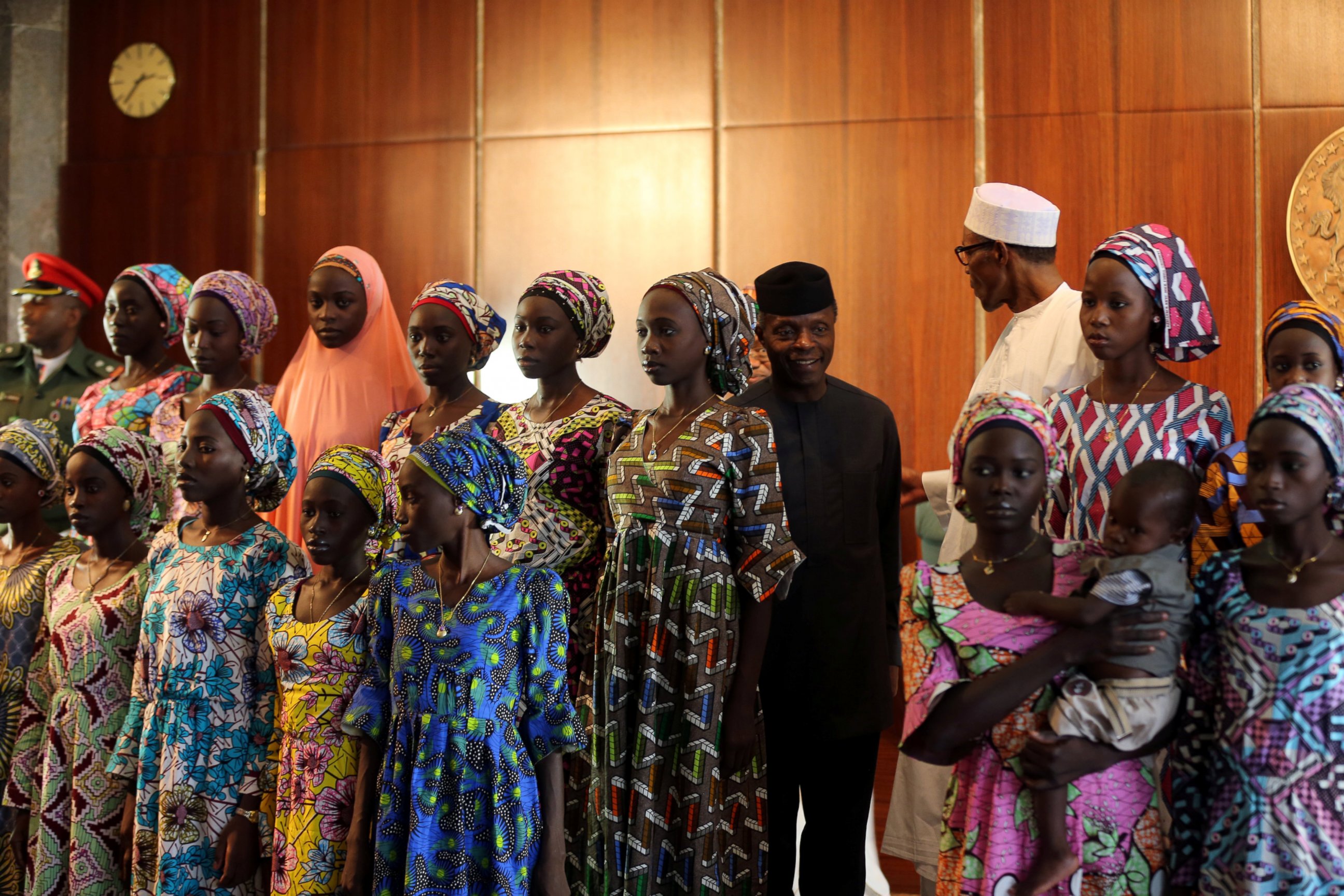
Jan. 5, 2017
While investigating suspected Boko Haram militants, the Nigerian military says soldiers found one of the Chibok girls wandering in the bush near Boko Haram’s Sambisa Forest stronghold. The girl, identified as Rakiya Abubakar, was found with a six-month-old baby.
The girl was a senior high school student when she was abducted in Chibok, according to army spokesman Sani Usman.
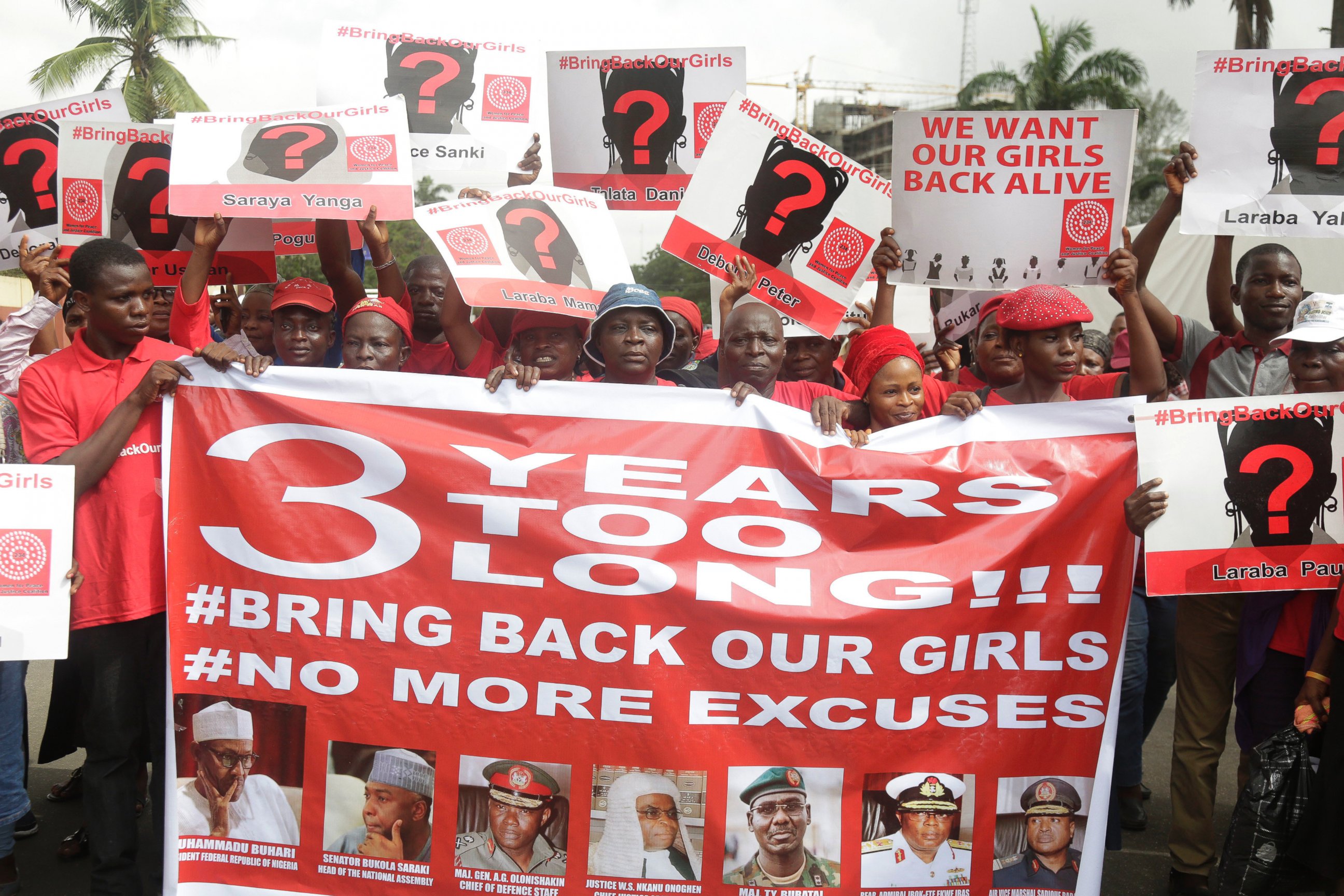
April 12, 2017
Nigeria’s government says negotiations with Boko Haram continue for the release of the remaining Chibok girls.
The government "has gone quite far with negotiations," according to Nigerian Vice President Yemi Osinbajo.
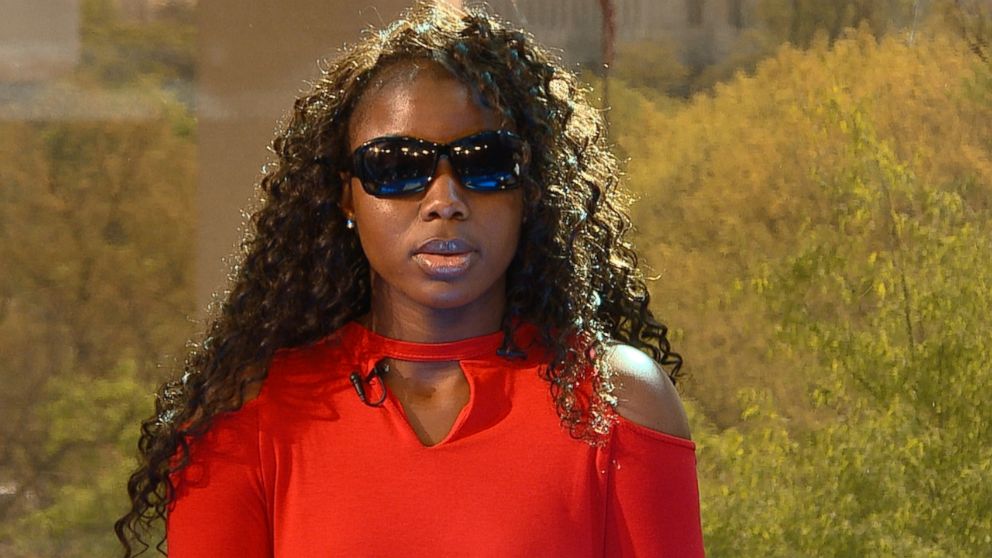
April 14, 2017
Two of the Chibok girls who were able to escape and have since moved to the United States attend a press conference at the Newseum in Washington, D.C., marking the three-year anniversary of the abduction.
The girls are joined by Nathan Walker of the Newseum, Nigerian human rights lawyer Emmanuel Ogebe and author Helon Habila, who wrote the book “The Chibok Girls: The Boko Haram Kidnappings and Islamist Militancy in Nigeria." The press conference notifies the public that 195 Chibok schoolgirls are still missing.
One of the girls sits in the audience, choosing not to speak. The other, who goes by the alias Sa’a, speaks briefly about continuing her education in the United States.
“My dream is I want to become a doctor, by God's grace,” Sa’a tells the audience. “And I'm working towards that right now. I'm studying biological and physical science, not only to be a doctor but also to be an inspiration for girls back in Nigeria or children who couldn't get the opportunity to go to school.”
Sa'a becomes tearful when speaking about her classmates who remain missing.
“I couldn't imagine I'm still there what would have happened to me," she says. "I might have been one of those that died. I might have been one of those girls who came back home with babies.”
ABC News' James Bwala, Lindsey Jacobson and Janet Weinstein contributed to this report.




